
The built environment has a significant role to play in addressing climate change and enabling the transition to a net zero and more inclusive future. The winning project of Billionbricks homes at The Holcim Awards for Sustainable Construction global showcases the cutting edge of approaches to sustainable design, green architecture and materials innovation.

The Etania Green School in Malaysia wins the * DESIGN OF THE YEAR 2020, at the prestigious President*s Award of Singapore. More than just a school building, the school is a learning ecosystem designed for the tens of thousands of stateless children whose parents work in the oil palm plantations of Sabah.
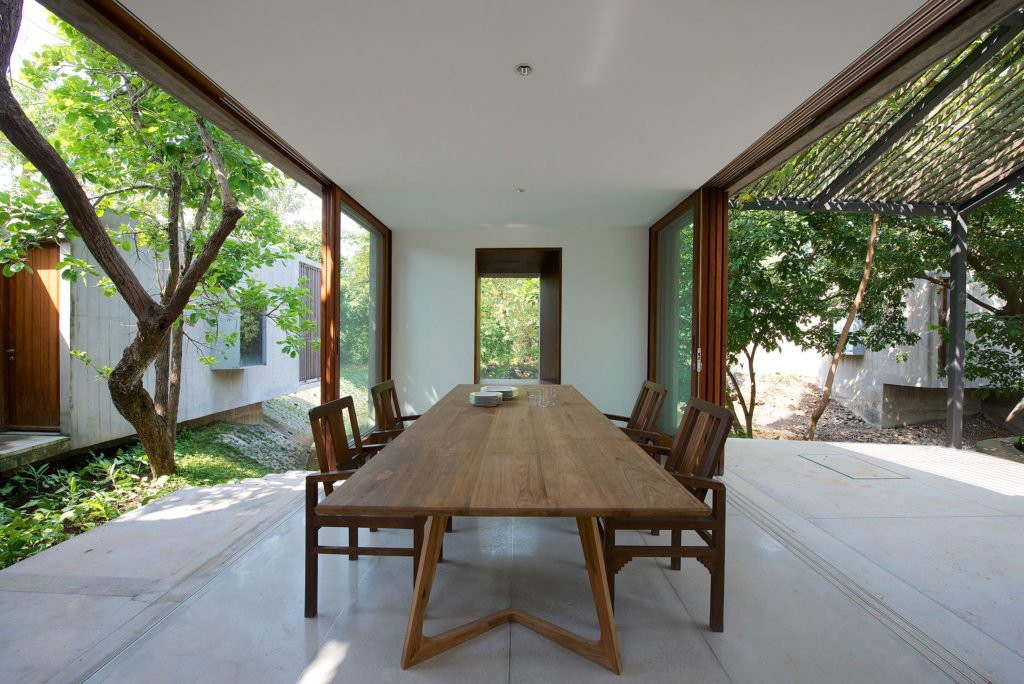
Across the globe, architecture has had a ubiquitous and rich history of interacting with its natural surroundings. From the hanging gardens of Babylon to the verandas of colonial-era bungalows, tedious effort and time have been spent crafting designs that best allow a structure to become a part of the landscape it sits upon. Yet, modern trends often show a relatively harsh disconnect between people’s homes and the land that frames them. Architecture BRIO, rather successfully, strives to include nature in their progressive designs. Robert and Shefali manage to not only create domains that appear visually stunning but also draw on the natural benefits of a property. Simply, BRIO’s designs are delineated by playing to a given plot’s strengths.

Billion Bricks is proud to be featured in the 59th issue of Green Building, Taiwan. In this release, we present the Etania Green School project and display new pictures and insights about the project.
The school building stands on a riverside site that has a history of devastating flooding. Therefore, like much of Borneo’s vernacular architecture, the school is placed on top of decommissioned building containers. This prevents the classrooms from flooding.
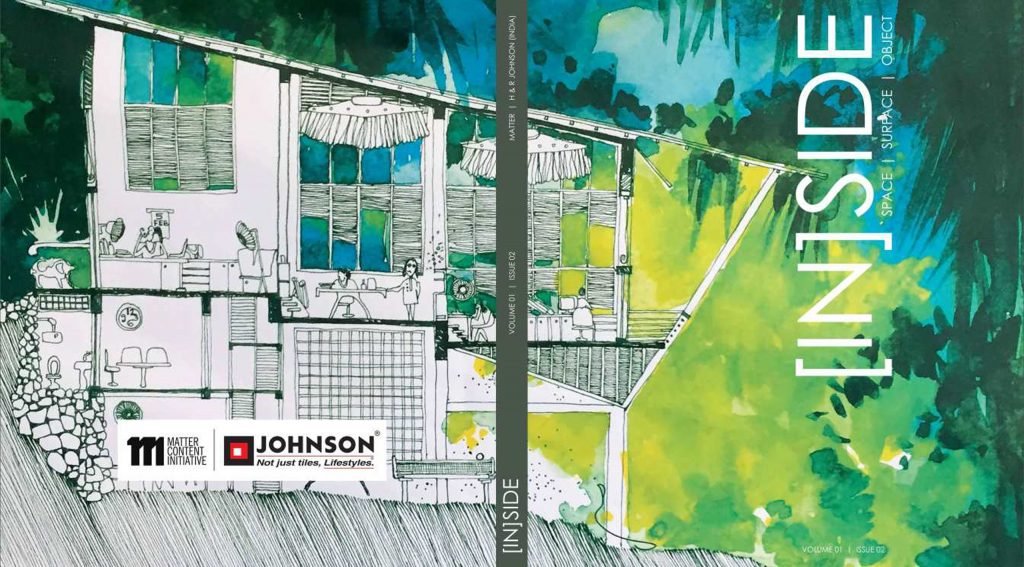
This issue is the second in a series of the bi-annual design journal. It is published by Matter on Contemporary Architecture and Design in India. The publication chronicles and document ideas and works of some of the most innovative designers from India. The 200-page design journal contains more than 350 full-colour images, drawings, essays, dialogues and editorial on projects of many scales and typologies.
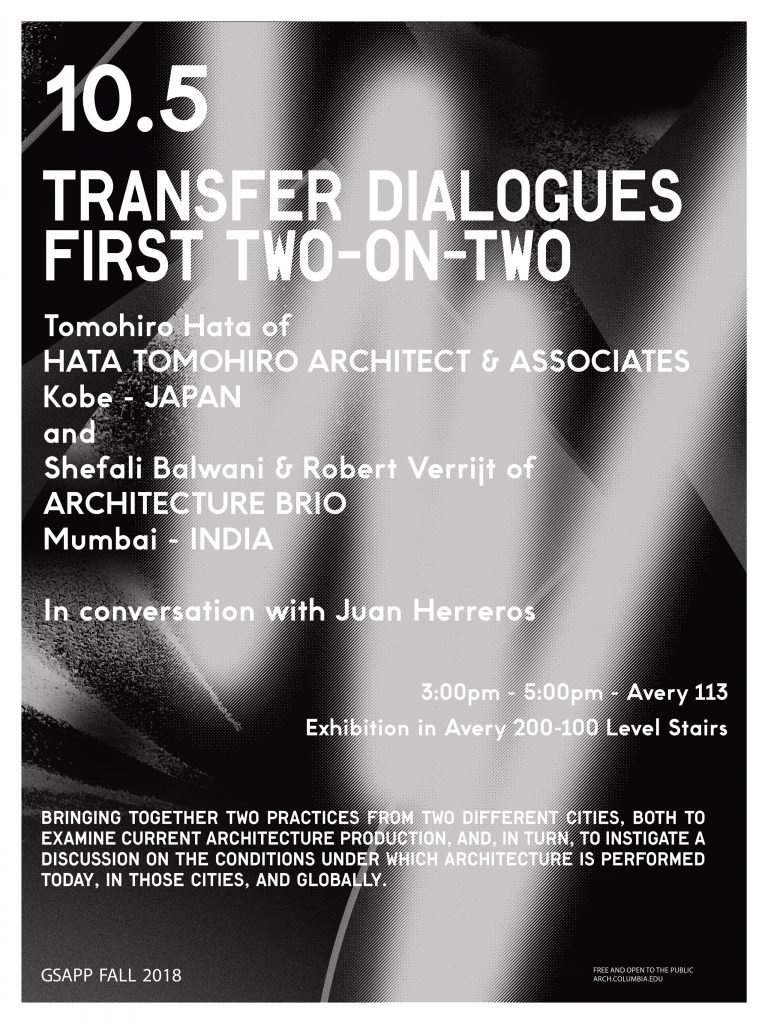
Shefali Balwani and Robert Verrijt will lecture at the Transfer dialogues in Colombia GSAPP, New York, on Friday the 5th October.
Alongside Tonohiro Hate from Tomohiro Hate and Associates, Kobe Japan, this lecture brings two different practices from different countries together. It explores and compares their way of producing architecture in today’s globalised context.
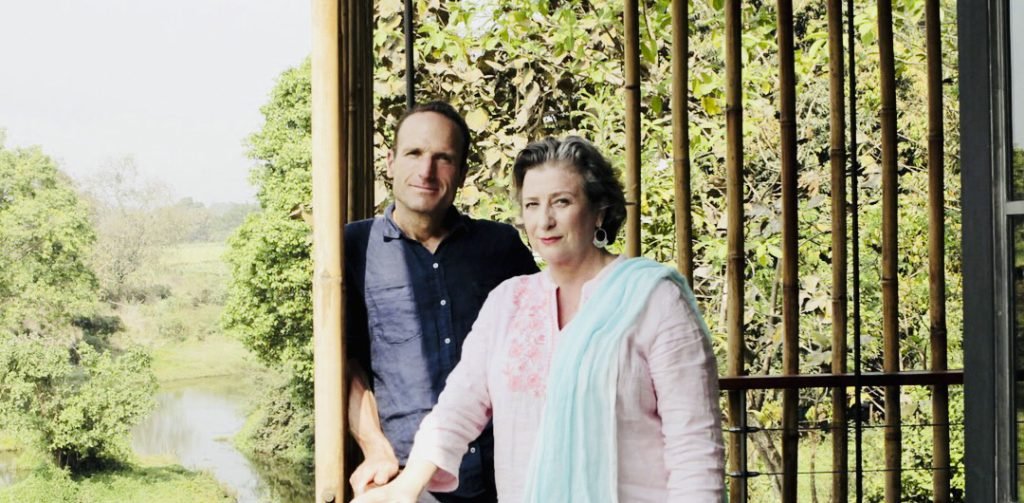
The ‘Riparian House’ was recently visited by Caroline and Piers who exclaimed in the India episode S02E06 of ‘The Worlds Most Extraordinary Homes’: “this house is like Marry Poppins, it’s practically perfect in every way”
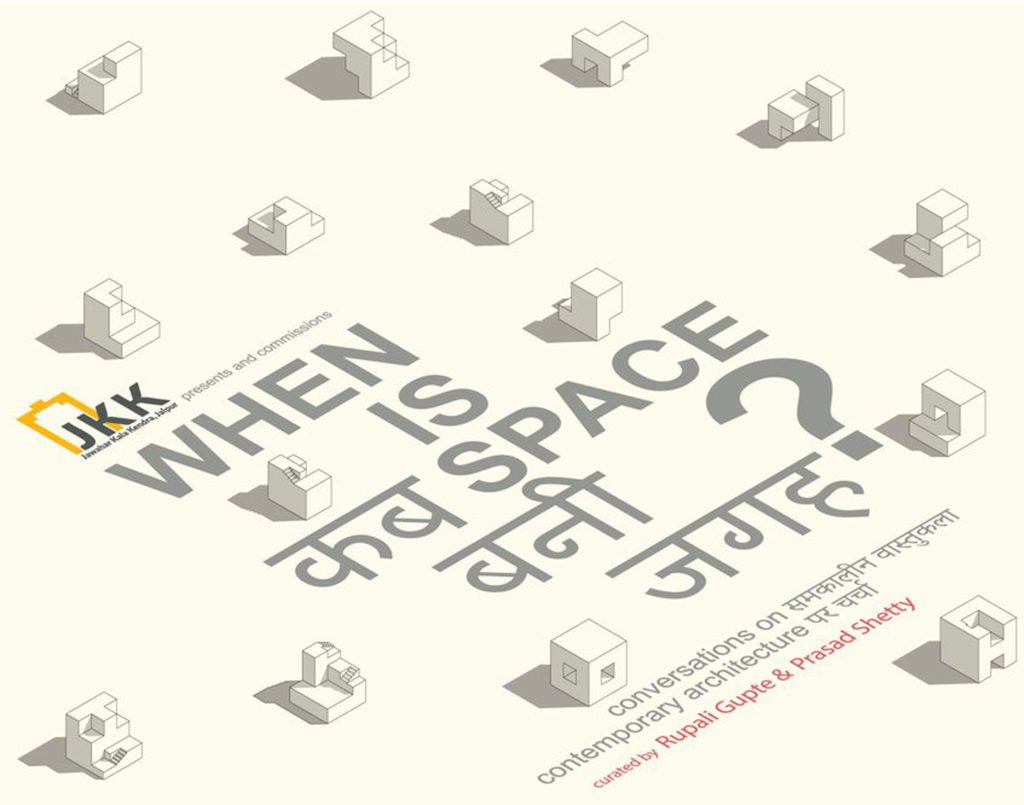
‘When is Space?’ discusses contemporary architecture and space-making practices in India. The historic city of Jaipur established by the astronomer-king Sawai Jai Singh and the Jawahar Kala Kendra, one of the most significant buildings of Charles Correa, provide an apt context for this exhibition. A large part of contemporary space-making practices appears to be structured around three imperatives: first, computational and mathematical logics aided through a variety of devices including digital media; second, environmental and cultural responsiveness that manifests as new building typologies; and third, concerns regarding city and public that produce urbanistic practices of research and advocacy. These imperatives were also central to the pursuits of Jai Singh and Charles Correa.

The Times of India reports on its front page the latest endavour the Bandra Collective is undertaking. Concerned with the quality of public spaces in Bandra, the collaborative of architects and designers initiated a proposal that tackles several issues culminiating on a stretch of public space on traffic congested Linking Road.

Brown Paper Bag reports on the Bandra Collective, a colony of architectural firms The Busride Design, Samir D’monte Architects, Sameep Padora & Associates, Urban Studio, Abraham John Architects, Architecture BRIO that are working with the municipality to make Bandra a prettier place.
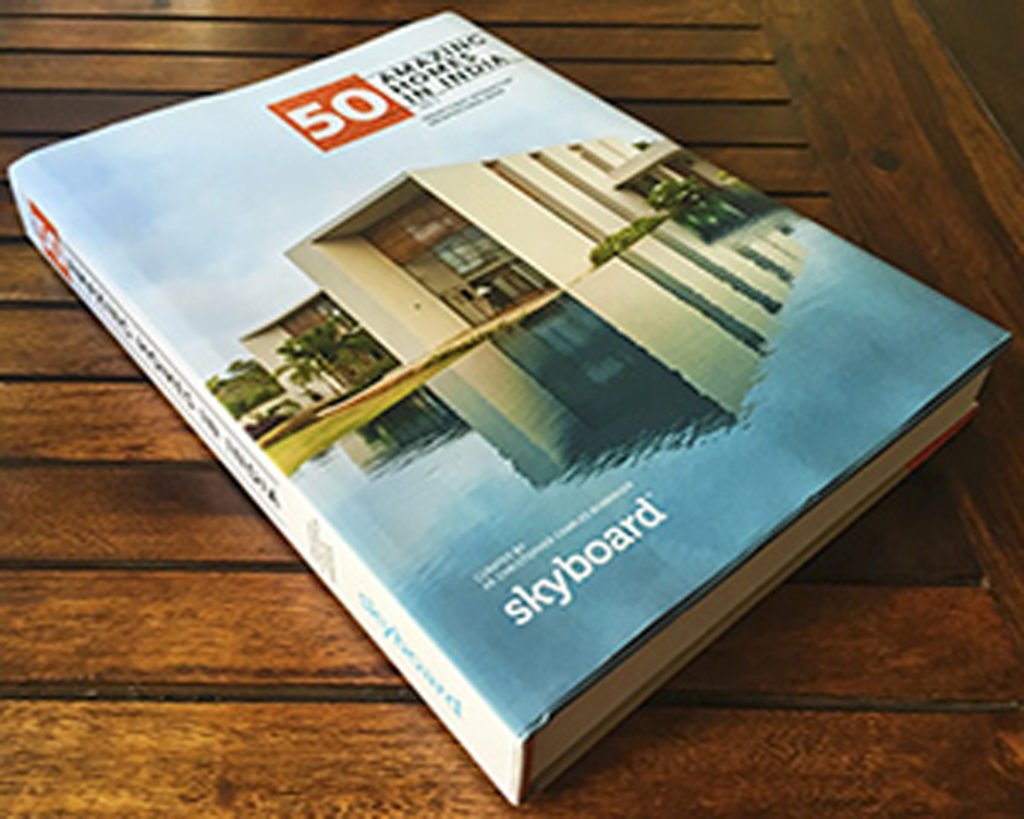
India’s first interactive architectural book, ’50 Amazing Homes in India’ is now available for booking. The book features the 50 best residential projects with the videos of India’s finest architects and is curated by Ar. Christopher Charles Benninger
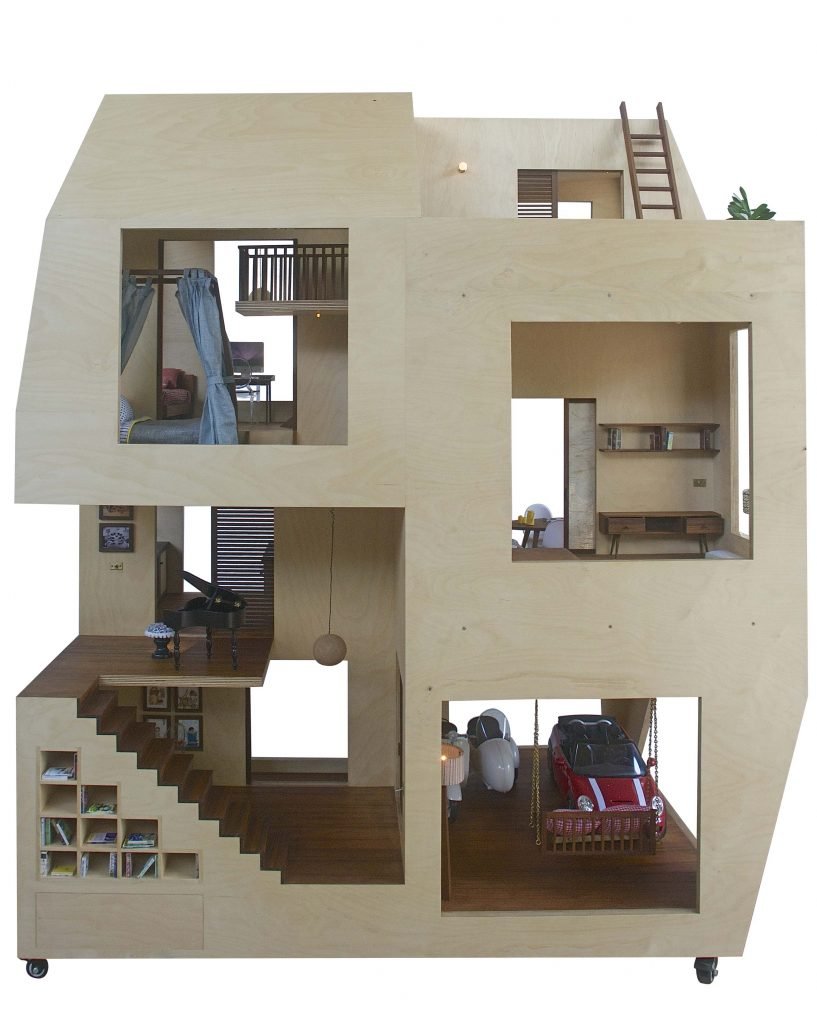
Gizmodo reviews the Spiral Dollhouse design: “If you’re already feeling self-conscious about the tiny one-bedroom apartment you call home, this stunning sixth-scale house designed for dolls or action figures isn’t going to make you feel any better about your living arrangements. But it will give you something to aspire to one day, because this isn’t Barbie’s dream house, it’s everyone’s dream house.
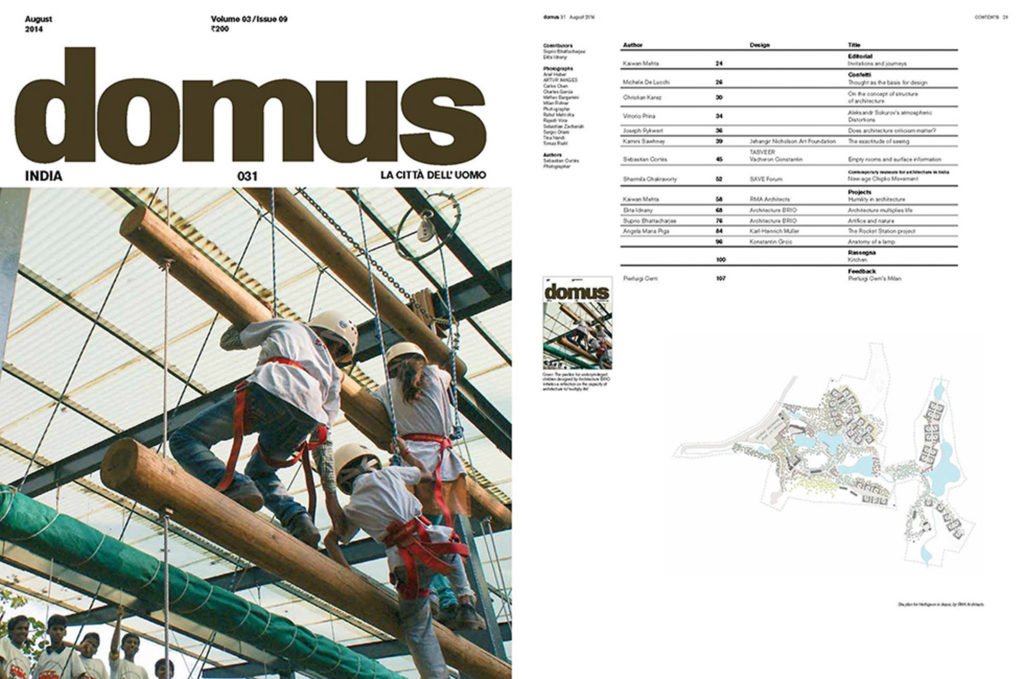
The Children of Magic Bus climbing the Laureus Learning Pavilion adorn the latest cover of Domus. The August edition of the architecture magazine features articles on the Magic Bus Learning Pavilion and the House on a Stream.
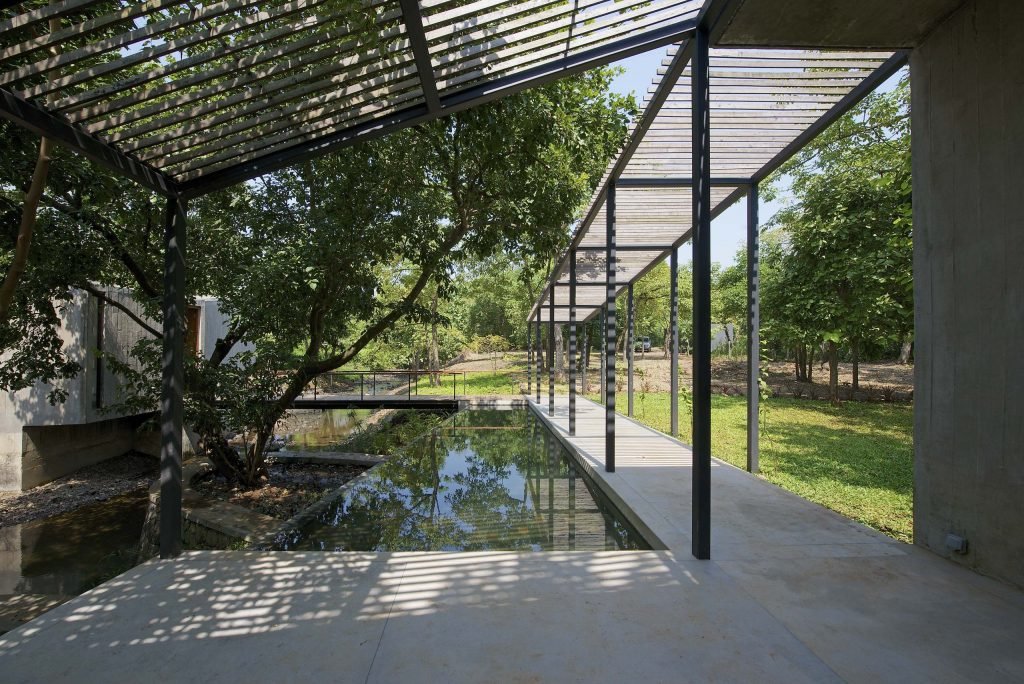
The experiential content of any structure is as important as the aesthetic one. And the young architecture firm in Mumbai, Architecture BRIO effortlessly bring this balance of plausible and implausible in their work. Headed by a Dutch – Indian duo, Robert Verrijt and Shefali Balwani, the firm in a short span of eight years has made its mark on the architectural map of the country.

The first NDTV Design and Architecture Awards focus on the complexities of building projects from an innovation, design, aesthetic, sustainability and conservation perspective. A high powered jury did the tough of job of shortlisting the winners from the all the entries received. Architecture BRIO won the award for the House Design of the Year 2014 for their project “House on a Stream”.

Who is shaping India’s design expression and re-inventing our landscapes? Architectural Digest compiled a list of the 50 most influential names in Indian architecture and design for 2014 – AD-50. Architecture BRIO was amongst them.
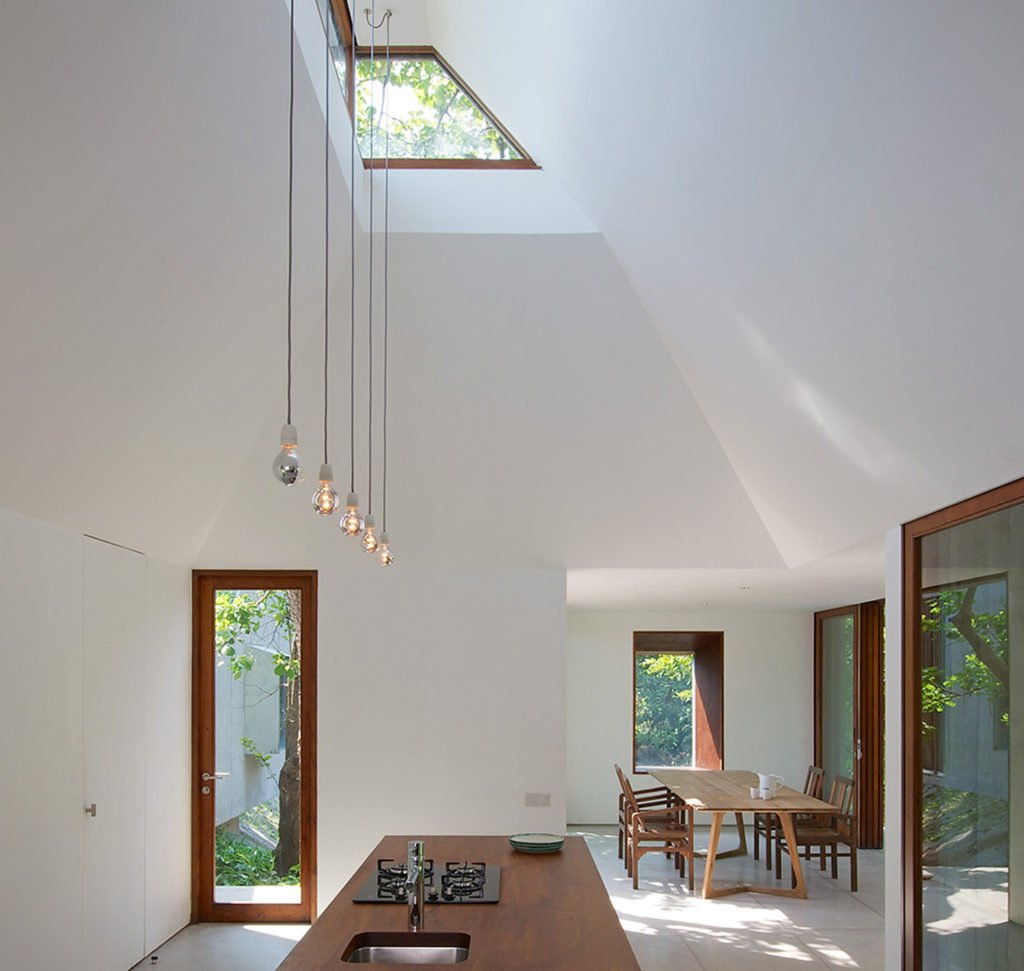
Architecture BRIO completes the “House on a Stream” in Alibag, India. Ian Nazareth writes in his article in the “Australian Architectural Review”: “….the project is strikingly brusque, making ideological links with representation and occupation, expressing a deliberate divergence.”
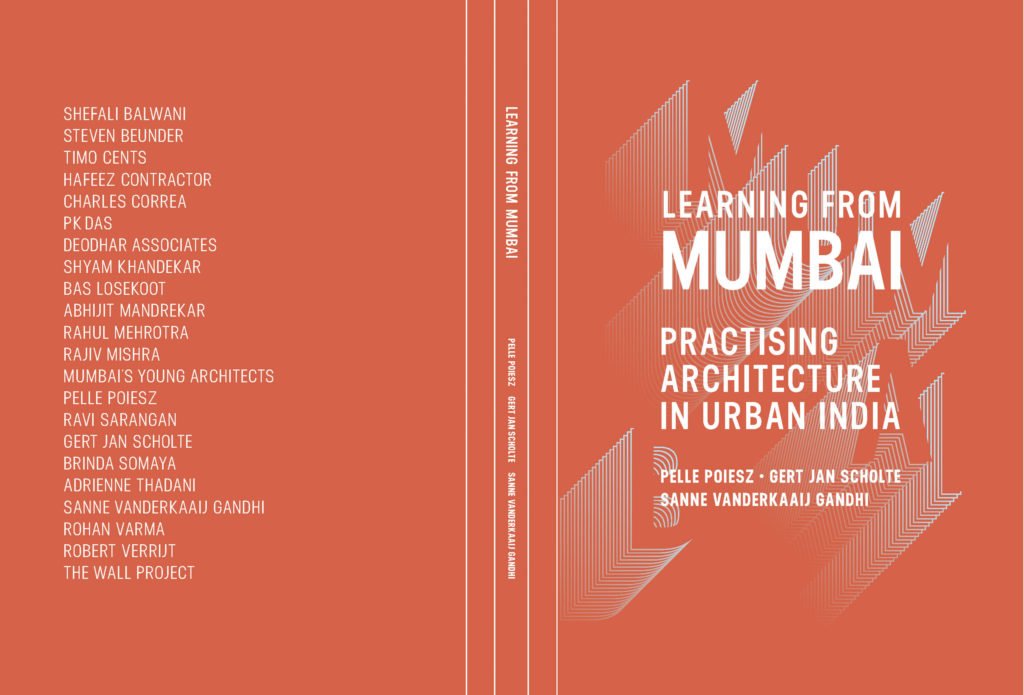
The book “Learning from Mumbai” will be launched today, the 14th of May in the Hague. The book attempts to protrait the nature of the architectural practice in Urban India from diverse points of view. A chapter called “Socially and environmentally Conscious Architecture” has been dedicated about how Architecture BRIO deals with the challenges of the profession.
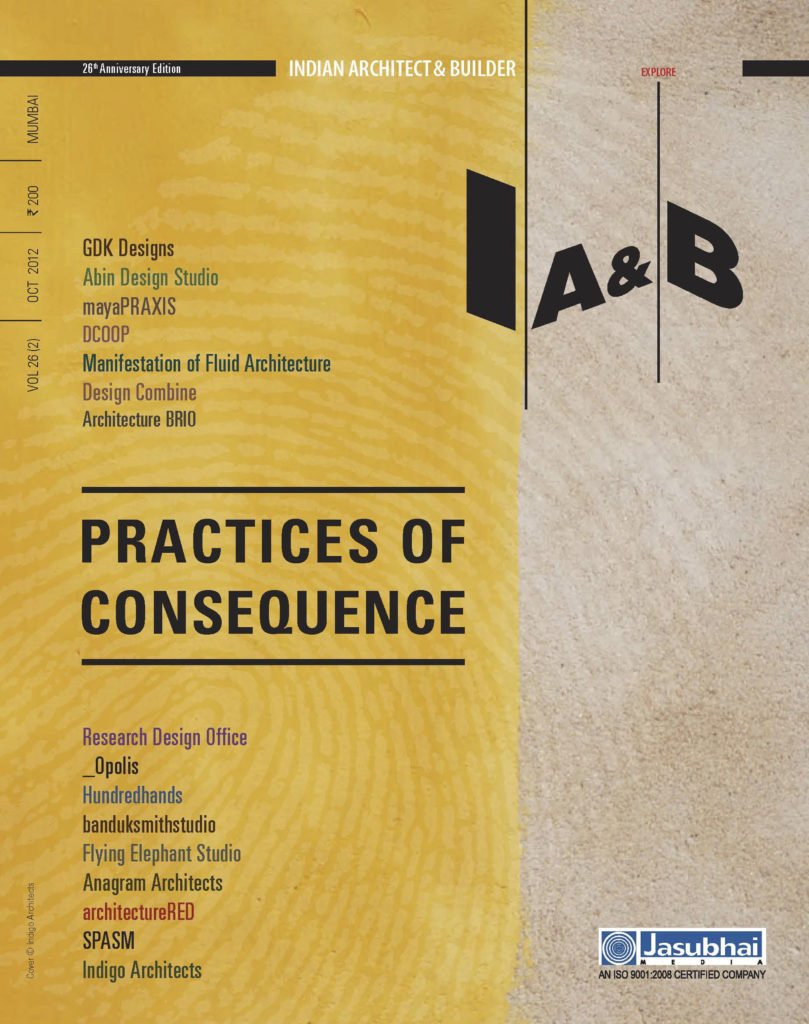
Architecture BRIO has been published in the “Practices of Consequence” issue of Indian Architect and Builder. The issue comprises of essays, conversations and comments on some of the most significant and emerging practices in the Indian context.
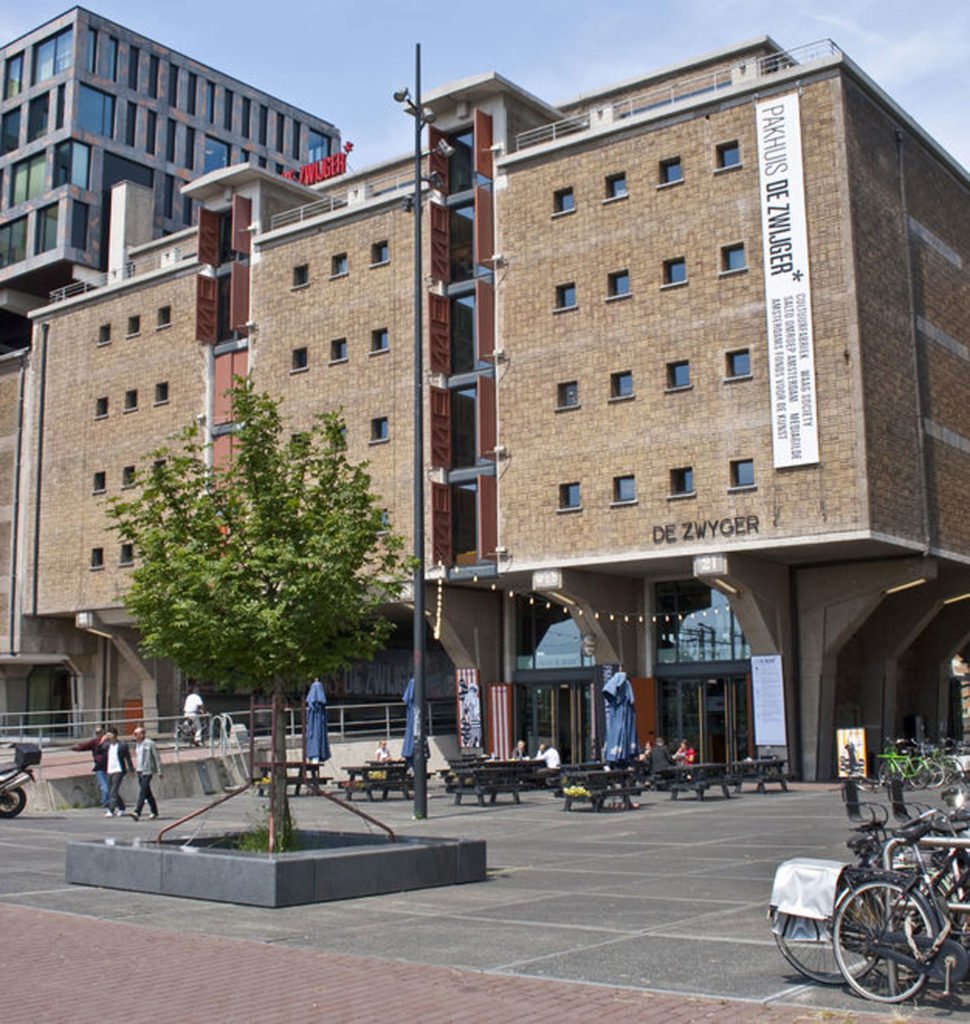
Workshops, keynotes and inspiring stories about doing business in India.
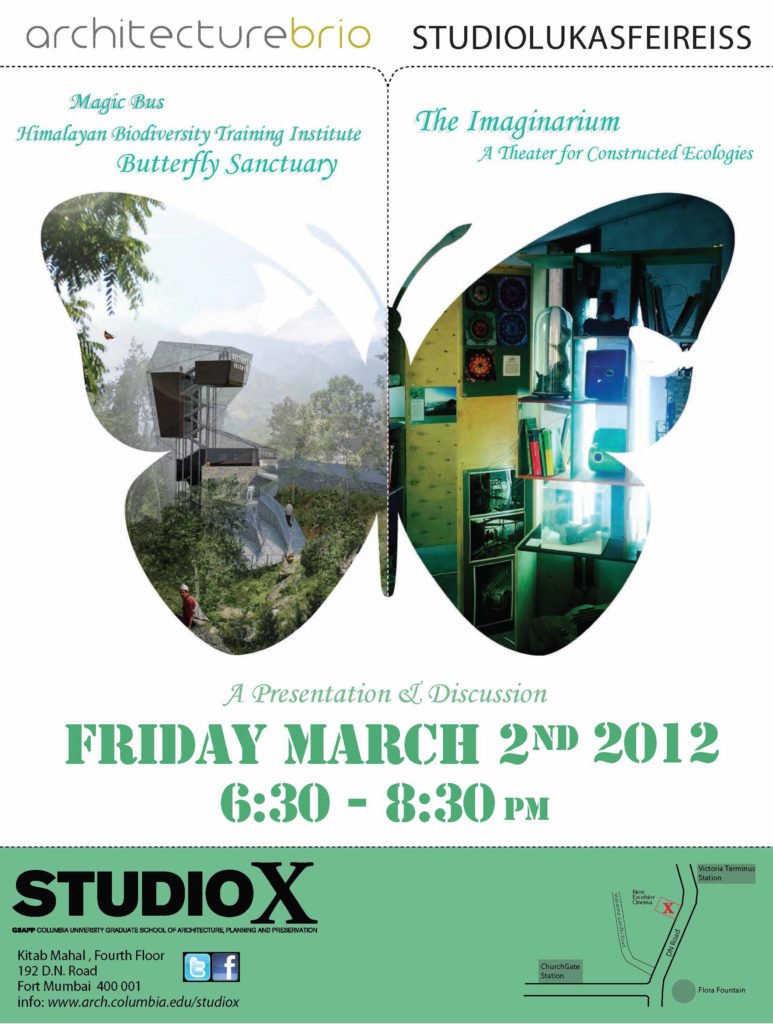
Studio Lukas Feireiss presents ‘The Imaginarium’ on display currently at Studio X Mumbai. ‘The Imaginarium’ is devoted to the prescient subject of ecological change and adaptations caused by artificial interventions into existing ecosystems. It catalogues a world in which the sun is setting on our idealistic and preservationist views of the natural world.
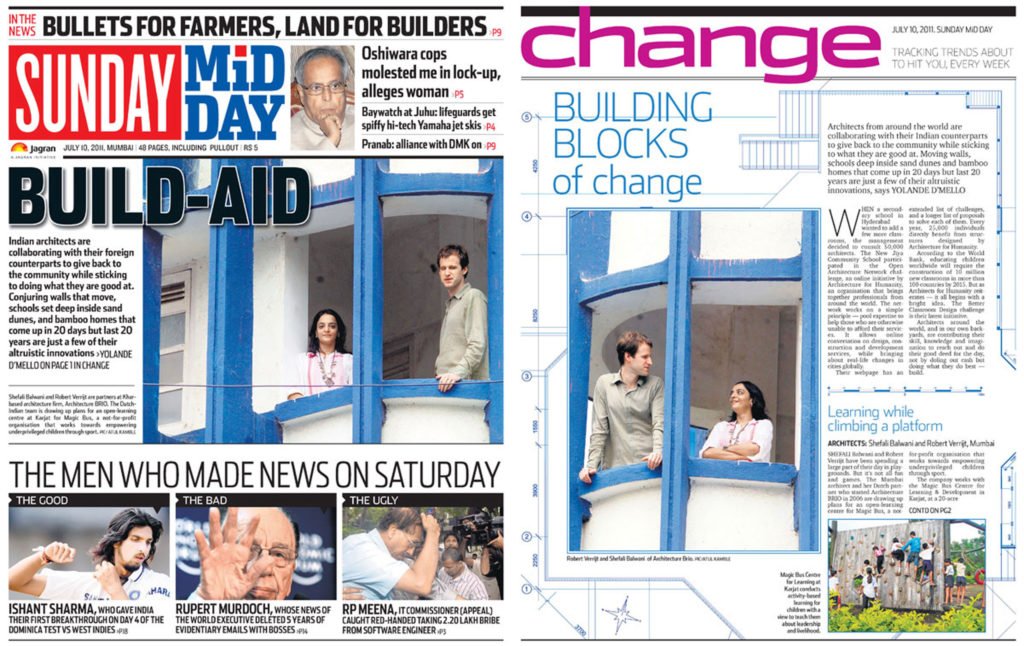
Sunday Midday published an article on architects working with communities and NGO’s in India. The article featured projects by ‘Architecture for Humanity’, ‘Scott Gerald Shall’, ‘Vaibhav Kaley’, ‘Sandeep Virmani’, ‘the Cohesion Foundation’, and ‘Architecture BRIO’
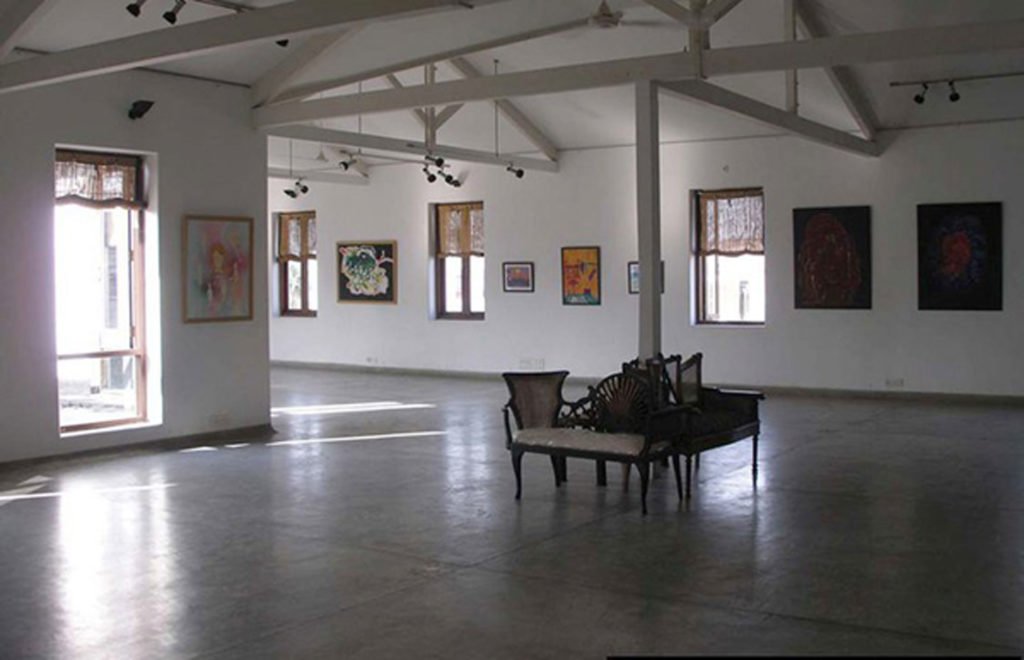
Architecture BRIO conducts workshop in “Unsolicited Architecture” event at Studio-X in Mumbai on 12 and 13 February 2011
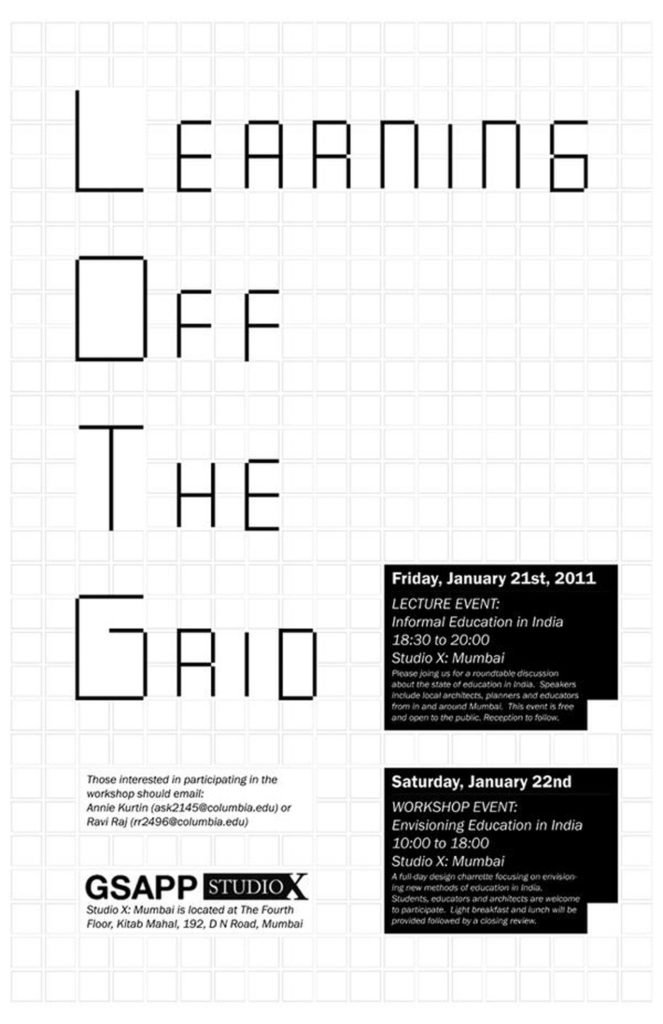
Architecture BRIO gives a lecture on the Magic Bus Learning Pavilion at “Learning of the Grid” at Studio-X in Mumbai on 21 January 2011
A roundtable discussion about the state of education in India. Speakers will include local architects, planners and educators from in and around Mumbai.
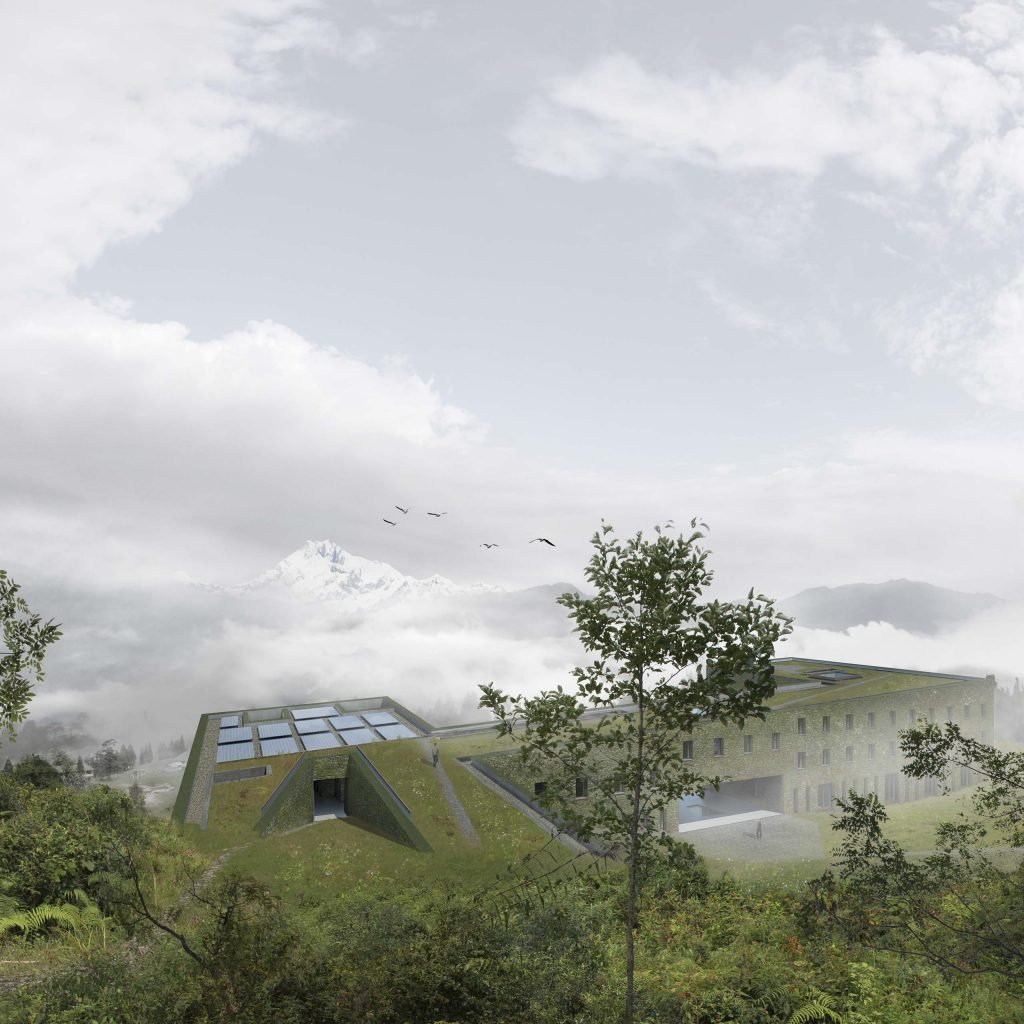
The North Indian state Sikkim, strengthens its approach towards environmental friendly strategies. fUSE Studio and Architecture BRIO have been appointed via an international tender to design the Biodiversity Training Institute of Sikkim.
The building with educational and residential facilities will be characterized by green features that derive from re-using and reinterpretation of local techniques and knowledge.
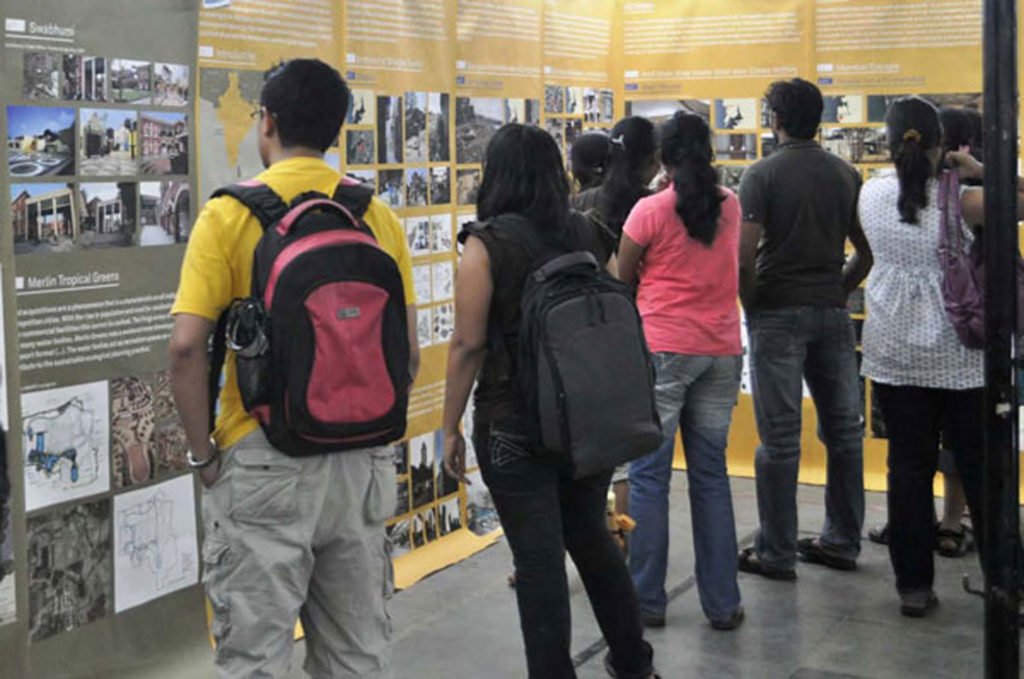
The travelling exhibition “Building India- Indian Visions Dutch Methods” was successfully opened at Sir JJ College of Architecture. Mumbai on the 9th July 2010. The exhibition was originally on show at the ARCAM Gallery in Amsterdam, and currently travels across various cities in India. The exhibition presents a general introduction to present-day India, to the current state of architecture and urbanism, and the building task for the next ten years.

Large scale European architecture companies have been moving into Mumbai over the last decade more and more to develop various projects. Indian architecture companies however have also been increasing, in size, in volume and in projects. While Mumbai is growing rapidly, the two architectural worlds seem somewhat distanced from each other. The young architecture practice Architecture BRIO fits right in between these two worlds. Not 100% European and not 100% Indian.

The Saffron Newslettter interviews Robert Verrijt about the meaning of identity in Dutch Architecture compared to the Indian context. For the Dutch, architecture is a legitimate form of expression, of identity. India, where contemporary architecture is more market-driven, is also beginning to recognize the power of design in the built environment. We look at the fascinating nexus between architecture and image in both countries….

Inhabitat is a authoritative weblog on sustainable design. It is devoted to the future of design, tracking the innovations in technology, practices and materials that are pushing architecture and home design towards a smarter and more sustainable future.
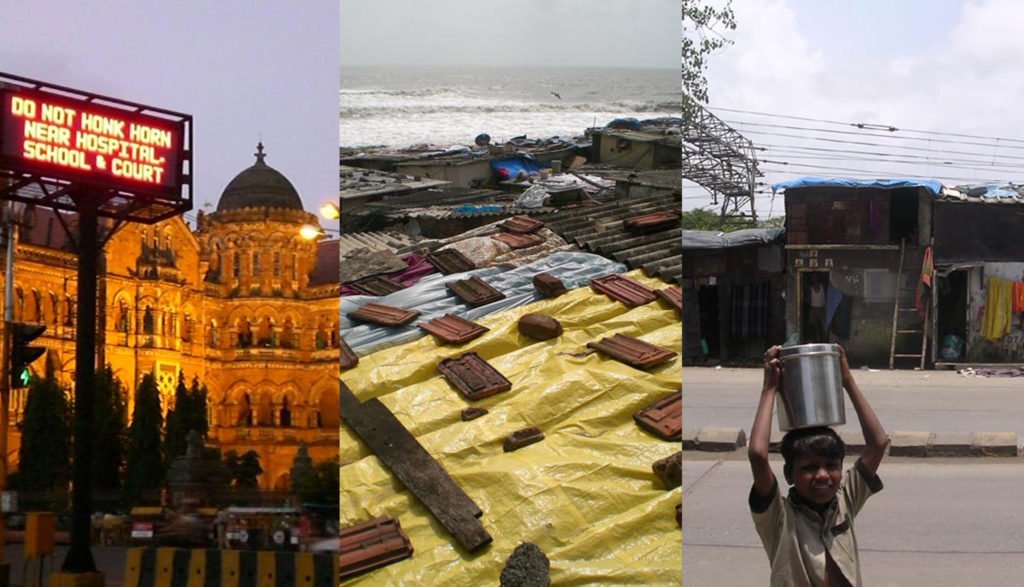
In the series city trips by Archined correspondents abroad Robert Verrijt writes about what not to miss in his city Mumbai.